When it comes to Feng Shui plants, there is no denying the multitude of benefits they offer to both homeowners and businesses. Houseplants not only clean the air and reduce stress but also bring a sense of purpose, satisfaction, and delight to their owners. But did you know that they can also attract good luck and positive energy into your home? By incorporating Feng Shui principles into your interior design and including houseplants, you can promote prosperity, success, and good luck.
According to Anjie Cho, a renowned Feng Shui expert, houseplants are a powerful way to bring nature's energy into our homes and connect with the environment. In addition to improving air quality and beautifying our living spaces, houseplants also have a healing effect on us, both energetically and practically.
What is Feng Shui?
Feng Shui is an ancient Chinese concept that aims to align people with their surroundings and the natural world. By being mindful of our home environments and paying attention to the details, we can create supportive and nurturing spaces that inspire joy and relaxation. In today's fast-paced and stress-filled world, having a place to recharge is more important than ever, and Feng Shui provides the tools to create environments that support us.
The ancient Chinese believed that arranging objects in a certain way could promote positive energy and bring health, wealth, and luck. Incorporating plants into this art form can enhance its effectiveness.
What is Bagua and how can it affect you?
A Bagua map is a diagram that guides Feng Shui design. By dividing the entire house, each room, or even each surface into separate parts, the Bagua map associates each segment with a different aspect of life, an element, and a compass direction. By placing houseplants in areas that correspond to the regions on the Bagua map related to the wood element, you can bring growth and vibrancy to different aspects of your life. For example, placing a houseplant in the east or southeast corner of your home's north side can attract positive energy into your business.
Now, let's explore the 10 best Feng Shui plants that can enhance wealth and positive energy in your home or business:
1. Pothos
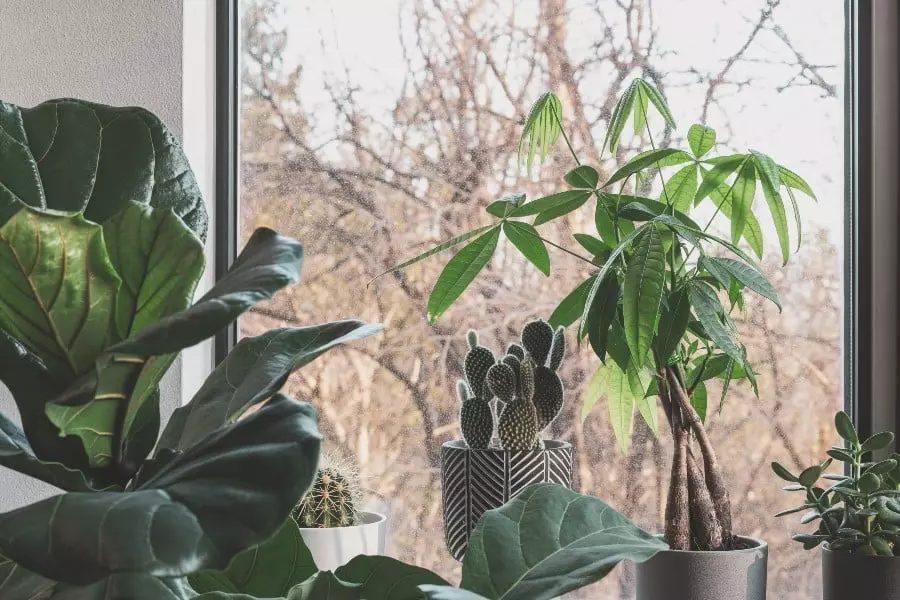 ©mahdigp / Unsplash
©mahdigp / Unsplash
Pothos plants are not only good for Feng Shui but also excellent air purifiers. They thrive in unused spaces, such as on top of kitchen cabinets or in the bathroom. Pothos plants are known for their long, green tendrils, making them ideal for hanging. These plants require minimal care and have soft, rounded leaves that spread calming and harmonious energy throughout your space.
2. Aloe Vera
 ©pisauikan / Unsplash
©pisauikan / Unsplash
Aloe Vera is a common indoor plant that requires little maintenance. In addition to its Feng Shui benefits, Aloe Vera works to eliminate bad luck and negative vibes. Place this plant within three feet of your computer to filter electromagnetic energy. Aloe Vera thrives in full sun for six to eight hours every morning and should be watered only when the soil is fully dry.
3. Money Tree Plant (Pachira Aquatica)
 ©ScottWebb / Unsplash
©ScottWebb / Unsplash
The Money Tree plant, also known as Pachira Aquatica, is believed to attract luck and good fortune. It thrives in dim light and requires infrequent watering, making it perfect for apartments and small spaces. Additionally, this plant is known to reduce tension and anxiety.
4. Philodendron
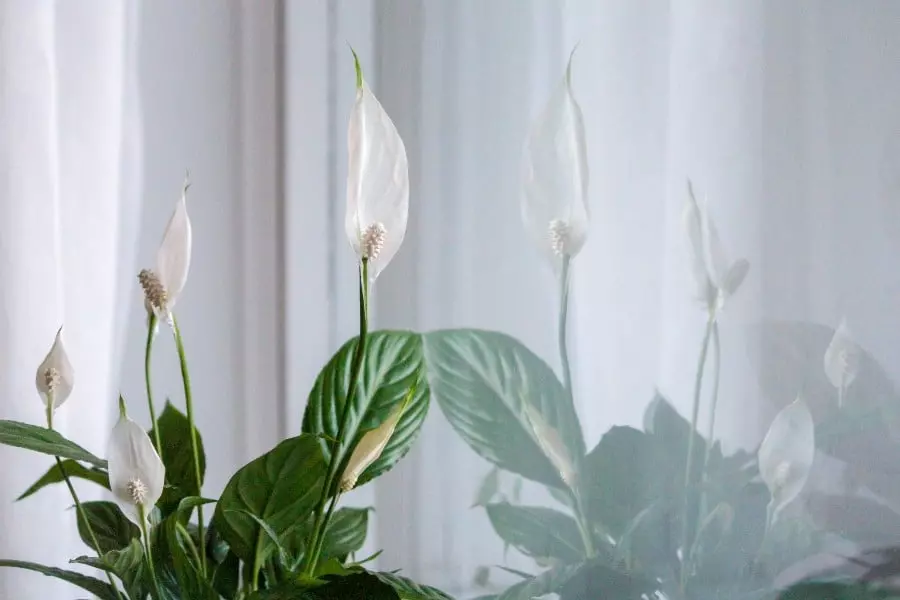 ©maikkleinert / Unsplash
©maikkleinert / Unsplash
Philodendron is an easy-to-grow houseplant that can tolerate poor lighting and requires low maintenance. It is also a great air purifier, promoting a better indoor environment. The heart-shaped leaves of Philodendron symbolize the fire element and infuse emotion into the dark corners of your home.
5. Peace Lily (Spathiphyllum)
 ©OutiMarjaana / Unsplash
©OutiMarjaana / Unsplash
Peace Lilies have flexible, flowing leaves and lovely white flowers that convert negative energy into positive energy, according to Feng Shui principles. Placing Peace Lilies in areas where you experience more stress than usual, such as your home office, can provide optimal benefits. These plants prefer slightly damp soil and filtered, indirect sunlight.
6. Jade Plant (Crassula ovata)
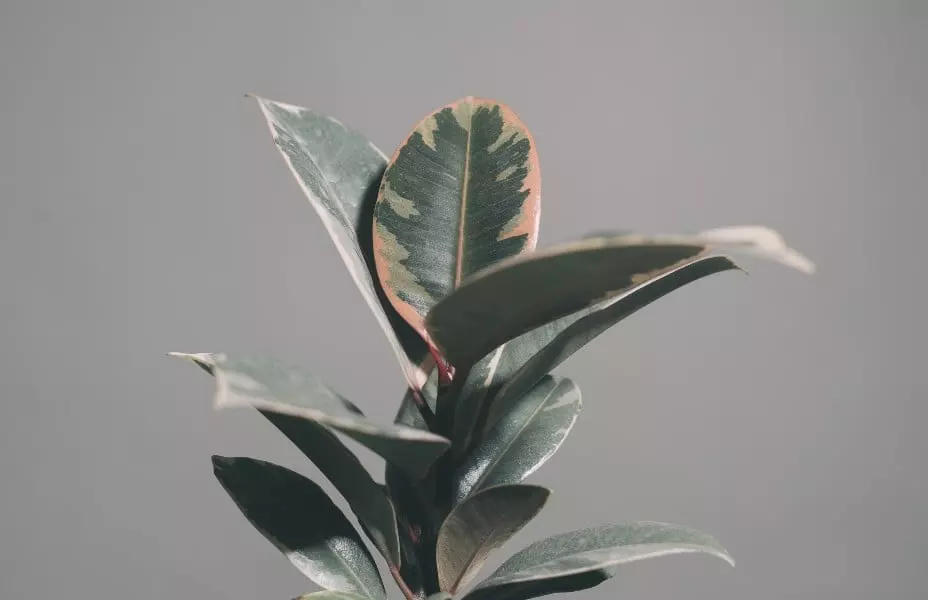 ©angelriveros21 / Unsplash
©angelriveros21 / Unsplash
Jade plants, also known as money plants and lucky plants, are associated with good fortune, wealth, and success. These succulents have delicately rounded, coin-shaped leaf segments and strong brown stems resembling tree trunks. Jade plants require at least six hours of strong sunlight daily and minimal maintenance.
7. Rubber Plant (Ficus elastica)
 ©ScottWebb / Unsplash
©ScottWebb / Unsplash
The Rubber plant features thick, glossy leaves with purple stripes, making it an ideal choice for those looking for a small Feng Shui plant. Its curved leaves soften harsh aspects of your home. Rubber plants require frequent watering to maintain moist soil and thrive best in bright light.
8. Lucky Bamboo (Dracaena sanderiana)
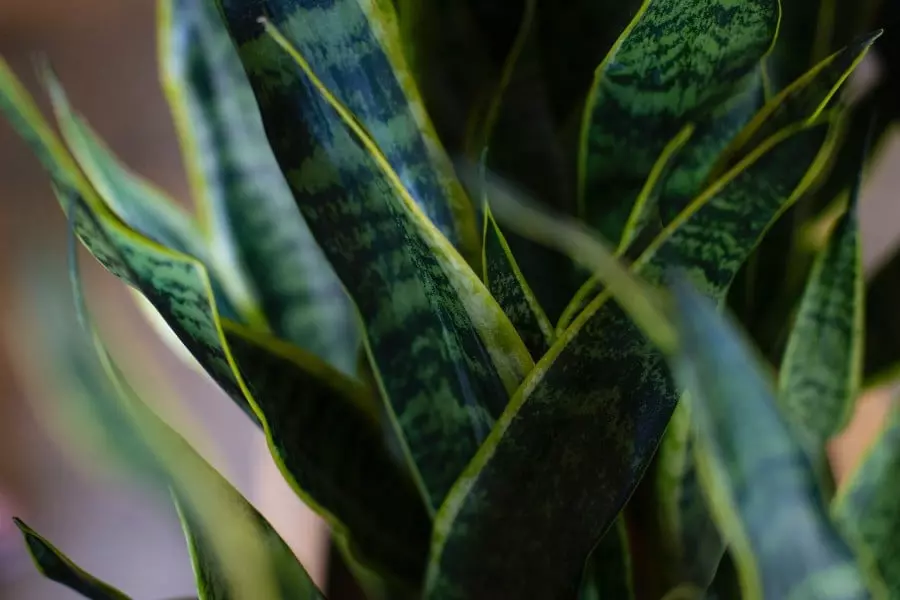 ©feeypflanzen / Unsplash
©feeypflanzen / Unsplash
Lucky Bamboo, a type of Dracaena plant, delivers a tranquil and sensible vibe to your home, according to Feng Shui experts. It is an excellent choice for beginners as it can thrive even with neglect. Lucky Bamboo prefers moderate or indirect sunlight and slightly wet soil. Remember to use distilled or filtered water, as it is sensitive to chlorine.
9. Snake Plant (Dracaena trifasciata)
 ©drew_beamer / Unsplash
©drew_beamer / Unsplash
Despite their harsh, lance-shaped leaves, Snake plants are renowned for providing good fortune and positive energy in Feng Shui. They are easy to grow and have excellent air-filtering capabilities. Snake plants thrive in strong sunlight and are useful for balancing the energy of ceiling fixtures. They can survive in various degrees of illumination.
10. Citrus Trees (Citrus)
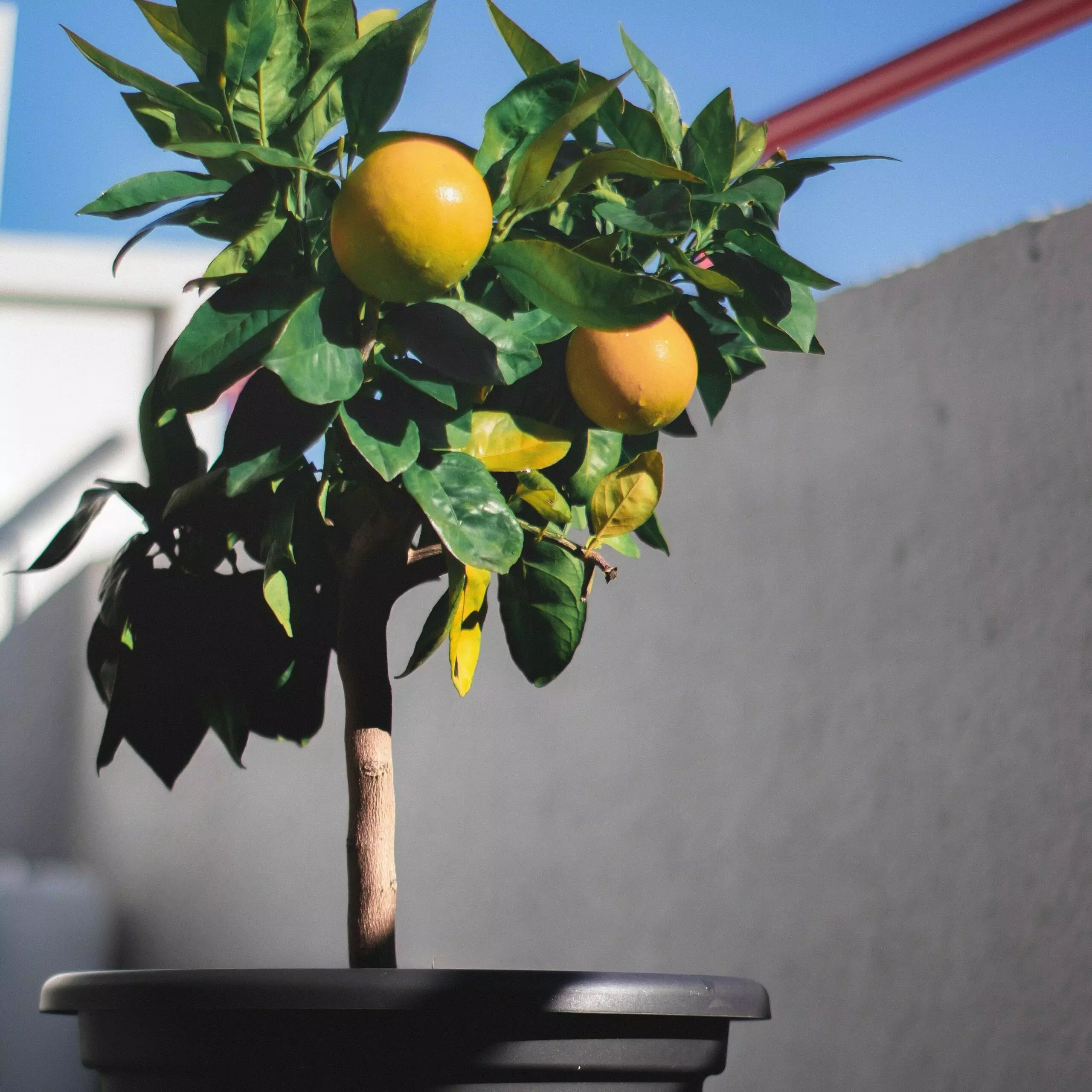 ©Artur Aldyrkhanov / Unsplash
©Artur Aldyrkhanov / Unsplash
Citrus trees, such as orange, lemon, grapefruit, or lime, are considered lucky and prosperous in Feng Shui. Although they may not bloom and produce fruit indoors, they are believed to bring abundance and positive energy to different areas of life, depending on their location on the Bagua map. Citrus trees require substantial sunlight, and taking care of them can be challenging, making them suitable for specific sunny spots.
Best Planters for Feng Shui Plants
When it comes to Feng Shui plants, the form and color of the planter are essential. The growth and energy of the plant are influenced by the pot and color, which can amplify the frequency of positive energy in your home.
To choose the best planter for your Feng Shui plant, consider the following factors:
Elements
- Fire: Most red blooming plants represent the fire element.
- Earth: Plants with thick leaves or stems and yellow flowers are associated with the earth element.
- Wood: Wood element plants include trees, succulents, non-blooming foliage plants, and those with sizable flowers.
- Metal: White-flowered plants represent the metal element.
- Water: Plants with blue or purple blossoms and curly leaves are associated with the water element.
Planter Colors and Shapes
- Fire Element: Pointy-shaped, red, or purple pots.
- Earth Element: Orange or yellow square-shaped containers.
- Wood Element: Green, turquoise columnar, or rectangular planters.
- Metal Element: Round or ball-shaped pots made of metal, silver, or gold.
- Water Element: White, black, or blue planters with wavy or rounded edges.
Planters Etc. Knows Planters
If you're looking for high-quality planters that complement your Feng Shui plants, Planters Etc. is the one-stop shop for all your planter needs. With over 70 distinct types available in various colors, shapes, and sizes, our planters are designed to enhance the beauty of your home, both indoors and outdoors. Our fiberglass planters are durable and can withstand harsh temperatures.
We take pride in offering the finest planters with an industry-leading warranty, emphasizing our commitment and the value we place on our products. Visit our online store today to explore our wide selection and enjoy a 10% discount on your first purchase!
FAQ: Feng Shui Plants
Q: What does Feng Shui say about plants? A: According to Feng Shui specialist Anjie Cho, adding houseplants can boost the energy of the wood element, which is associated with wealth, a happy family life, good health, and money. Houseplants also have numerous other benefits, such as improving indoor air quality.
Q: What plants are bad luck in the house? A: Cotton plants and Euphorbia Milii are believed to bring misfortune. Dead or rotten plants should also be avoided, as they represent stagnant energy.
Q: Where do I put my Peace Lily in Feng Shui? A: Peace Lilies can be placed in areas where you experience higher levels of stress, such as your home office. They prefer medium and indirect light.
Q: Where should I place a Snake Plant in my house? A: Snake plants should be placed in containers with good drainage to prevent overwatering. They thrive in indirect light and can tolerate various levels of illumination.
Q: Which plant gives more positive energy? A: Aloe Vera plants are effective in promoting good energy. They require regular watering and can be placed anywhere in your home.
Incorporating Feng Shui plants into your home or business can enhance the energy and create a harmonious and prosperous environment. By selecting the right plants and planters, you can bring positive energy, health, and wealth into your life.
So why wait? Simply visit Planters Etc.'s online store today and give your home a touch of beauty and positive energy with our high-quality planters. Enjoy a 10% discount on your first purchase and discover the transformative power of Feng Shui plants!

















